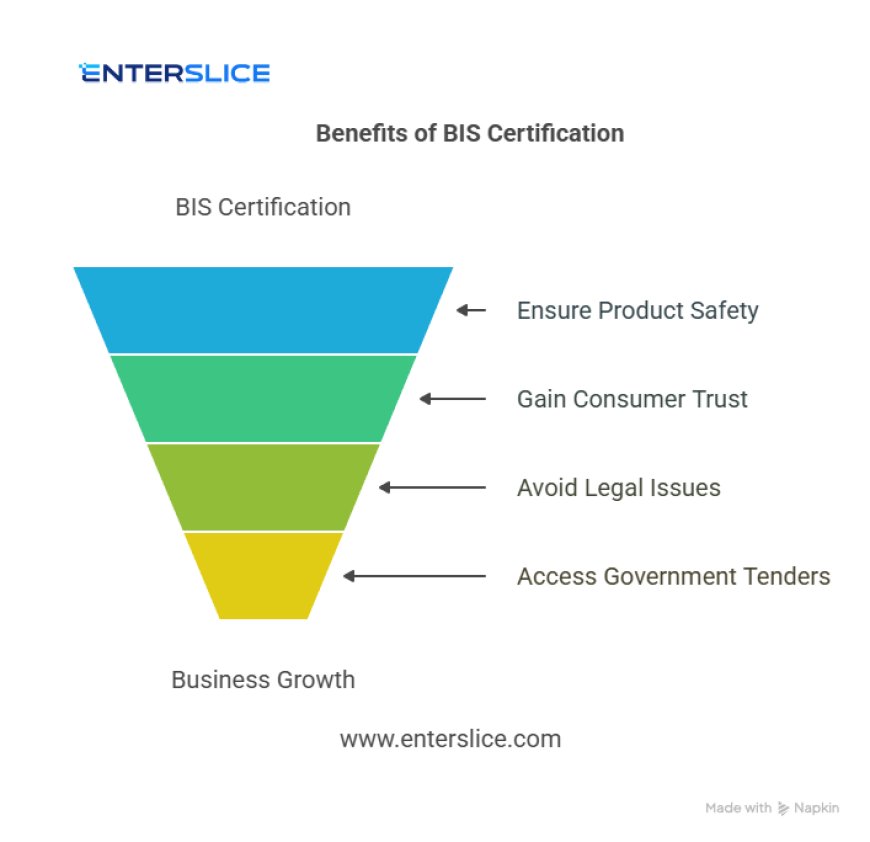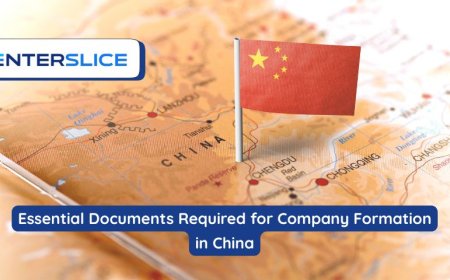BIS Certification in India: A Complete Guide
Get BIS Certification in India with expert help. Ensure product compliance, boost credibility, and enter Indian markets confidently. Talk to Enterslice today.
BIS Certification in India: A Complete Guide for Manufacturers
If you're a manufacturer or importer looking to sell products in the Indian market, you've likely heard of BIS certification in India. It's not just a formality—it's a legal requirement for many products under Indian standards. But the process can feel confusing and time-consuming if you're unfamiliar with the steps involved.
In this blog, we break down what BIS certification is, who needs it, and how to obtain it efficiently with expert support.
What is BIS Certification in India

BIS, or the Bureau of Indian Standards, is the national body responsible for setting quality standards across industries in India. BIS certification ensures that your products meet those standards and are safe, reliable, and of good quality for consumers.
There are different types of BIS certification schemes based on product categories—such as ISI mark, CRS (Compulsory Registration Scheme), and FMCS (Foreign Manufacturers Certification Scheme). Each type has its own procedures, documents, and testing requirements.
Why is BIS Certification Necessary?
For businesses manufacturing or importing electronics, household appliances, industrial equipment, and even food items, BIS certification in India is mandatory. It plays a key role in:
-
Ensuring product safety and quality
-
Gaining consumer trust
-
Avoiding legal complications or product bans
-
Entering large government tenders or export contracts
In short, if your product falls under the mandatory certification list, skipping BIS registration could mean heavy penalties or being banned from the Indian market.
Who Needs BIS Certification?
Both Indian and foreign manufacturers of specific product categories must obtain BIS certification before launching their products in India. Some common sectors requiring certification include:
-
Electronics and IT hardware
-
LED lighting products
-
Steel and copper products
-
Household electrical goods
-
Food packaging materials
Even startups or small-scale units must comply if their products are listed under the BIS mandatory scheme.
BIS Certification Process in India
The certification process involves several steps, but with the right guidance, it can be simplified. Here's a general outline:
-
Identify Applicable Standards: Check if your product falls under BIS's mandatory list and determine the relevant Indian Standard (IS).
-
Factory Inspection (If required): For ISI or FMCS schemes, BIS may inspect your production facility.
-
Testing by BIS-approved Labs: Submit product samples to a BIS-approved lab for quality testing.
-
Application Submission: File an online application with necessary documents like test reports, business licenses, and technical details.
-
Certification Grant: Once your product passes all evaluations, BIS issues the certification.
The timeline can vary from a few weeks to a few months, depending on the type of product and how well-prepared your documentation is.
How Enterslice Helps You Get BIS Certification
At Enterslice, we specialize in assisting businesses with the BIS certification process in India. From identifying standards to managing lab tests and handling application filing, our team ensures smooth coordination at every step.
Whether you're a startup launching your first product or an international brand entering the Indian market, we reduce delays, avoid compliance risks, and help you focus on growth.
FAQs
1. Is BIS certification mandatory in India for all products?
No, it's required only for products listed under BIS's mandatory certification scheme.
2. How long does BIS certification take in India?
It can take anywhere from 20 days to 3 months depending on the type of product and certification process.
3. Can foreign manufacturers apply for BIS certification in India?
Yes, foreign manufacturers can apply under the Foreign Manufacturers Certification Scheme (FMCS).
4. What happens if a product is sold without BIS certification?
Selling uncertified products that require BIS approval can lead to penalties, recalls, or bans from the Indian market.
































































